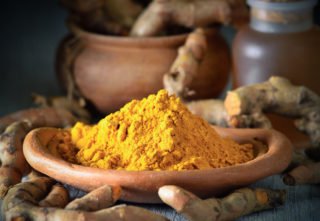A new scientifically peer reviewed study offers promising hope for reducing BMI. The study showed that when zinc and curcumin are taken together, they help improve weight outcomes.
The role of BMI
BMI is a measure of body fat based on height and weight.
What is considered a healthy BMI?
Specialists say a BMI reading between 18.5 to 24.9 is considered healthy. A reading of 25 and 29.9 means the person is likely overweight. A reading above 30 signals obesity. 75% of hypertension diagnoses are directly due to obesity.
Study Showed Zinc and Curcumin Supplements Can Be Effective on Key Glycemic Factors and Reduce BMI
According to the Council for Responsible Nutrition, proper management is essential for preventing type-2 diabetes. In this study, subjects were given curcumin, zinc, zinc plus curcumin or placebo for 90 days. At the conclusion, only the groups taking zinc, and curcumin plus zinc, had lower BMIs compared to placebo.
The researchers concluded that zinc and curcumin supplementation had a beneficial effect on several key glycemic parameters.
Curcumin and zinc have antioxidant, anti-inflammatory, and anti-diabetic properties.
In this clinical trial, 84 subjects were randomized into curcumin (500 mg), zinc (30 mg), zinc and curcumin, and placebo groups for 90 days.
Hypo-caloric diet and BMI
In this study a hypo-caloric diet and PA were recommended for all subjects.
In total, 82 subjects completed the study. After the intervention, dietary intake, PA, weight, and BCF% did not show a significant difference among the groups. However, subjects taking only zinc and zinc and curcumin groups experienced decreased BMI compared to the placebo (p = .01 and .007, respectively).
Read more about the health benefits of zinc and curcumin
 Other studies support the benefits of zinc
Other studies support the benefits of zinc
Zinc is an essential mineral necessary for proper immune function. It’s important for protein building, wound healing and maintaining a proper sense of taste and smell. Zinc is found in a variety of foods. These include meat, seafood, dark-meat poultry, dairy foods, legumes, nuts and zinc-fortified breakfast cereals. It is also readily available in supplementation form.
Weight-loss
There have been several studies on the role of zinc (on its own) and weight loss. A study published in 2013 in “Biological Trace Element Research” reported that individuals with obesity tend to have low levels of circulating zinc in their bodies. These researchers noted that boosting dietary zinc may benefit individuals with overweight and obesity. Another study found that study subjects with obesity who consumed zinc supplements containing 30 milligrams of zinc gluconate daily had improved body mass indices. They also lost weight and showed improvements in triglyceride levels.
Curcumin benefits
Test-tube studies suggest that curcumin may suppress particular inflammatory markers that play a role in obesity. These markers are typically elevated in people with excess weight or obesity. A Healthline article on insulin sensitivity explained how this compound may promote weight loss, reduce fat tissue growth, curb weight regain, and enhance your sensitivity to the hormone insulin.
Curcumin is the compound found in turmeric.
Piperine and turmeric
Piperine should be taken with turmeric Piperine is a compound in black pepper that may boost curcumin absorption by up to 2,000%.
In closing
The study on zinc and curcumin is promising. However, to ensure meaningful and long-term weight loss, a hypocaloric diet must be adopted. Also regular, relevant exercise forms a critical part of any weight-loss approach.
References
- The effect of curcumin and zinc co-supplementation on glycemic parameters in overweight or obese prediabetic subjects: A phase 2 randomized, placebo-controlled trial with a multi-arm, parallel-group design. Karandish M, Mozaffari-Khosravi H, Mohammadi SM, et al.
Phytother Res. 2021 Apr 23. https://pubmed.ncbi.nlm.nih.gov/33893671/
2. PubMed: Potential role of bioavailable curcumin in weight loss and omental adipose tissue decrease: preliminary data of a randomized, controlled trial in overweight people with metabolic syndrome. Preliminary study:
https://pubmed.ncbi.nlm.nih.gov/26592847/
3. Research Gate: Effects of Zinc Supplementation on the Anthropometric Measurements, Lipid Profiles and Fasting Blood Glucose in the Healthy Obese Adults December 2013 Advanced Pharmaceutical Bulletin 3(1):161-165 DOI:10.5681/apb.2013.027 Laleh Payahoo Alireza Ostadrahimi – Tabriz University of Medical Sciences; Majid Mobasseri – Tabriz University of Medical Sciences;Yaser Khajebishak – Maragheh University of Medical Sciences
4. Pubmed: Role of Curcumin in Disease Prevention and Treatment: https://pubmed.ncbi.nlm.nih.gov/29629341/
5. PubMed: Curcumin and obesity Peter G Bradford1 DOI: 10.1002/biof.1074






![women [longevity live]](https://longevitylive.com/wp-content/uploads/2020/01/photo-of-women-walking-down-the-street-1116984-100x100.jpg)









